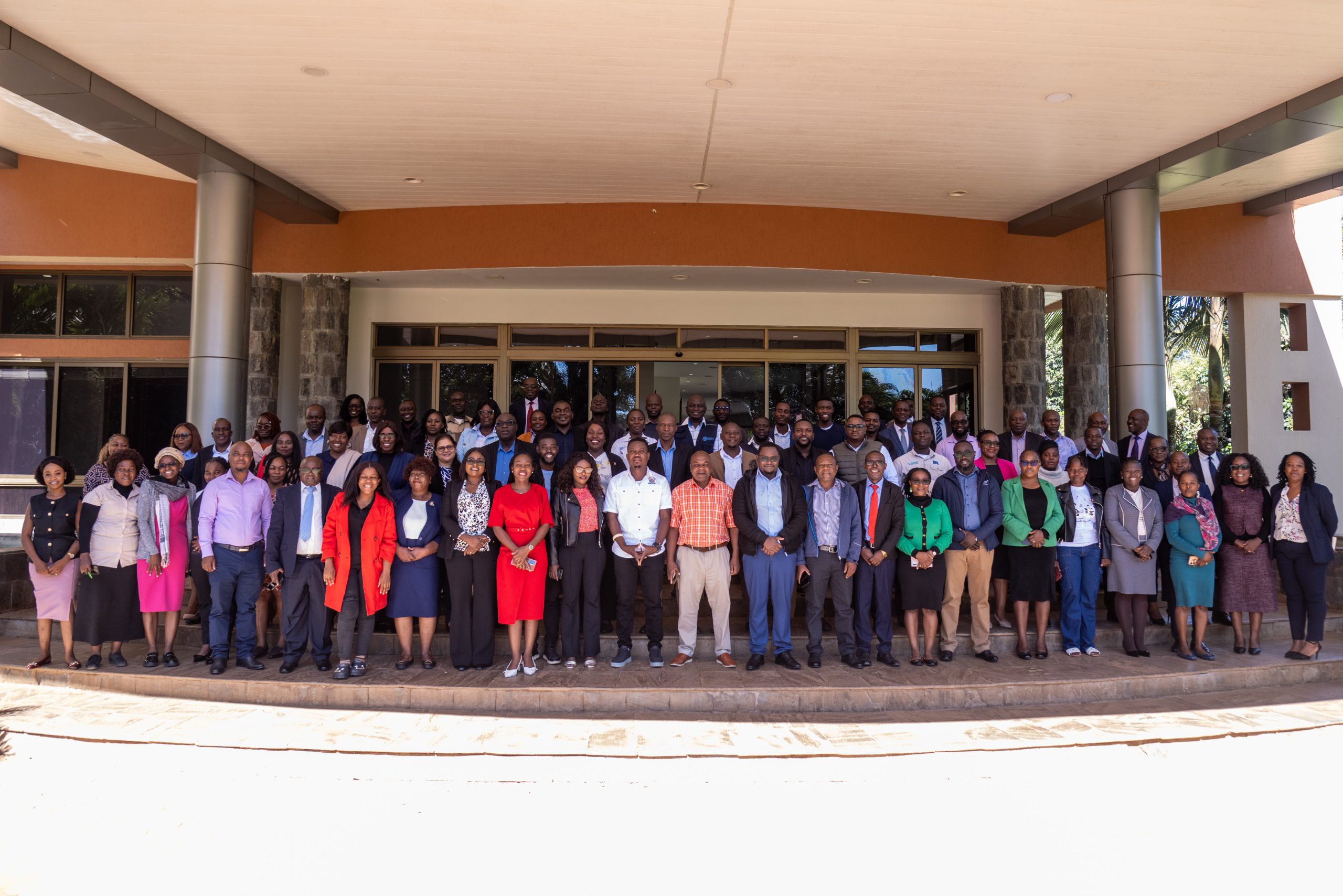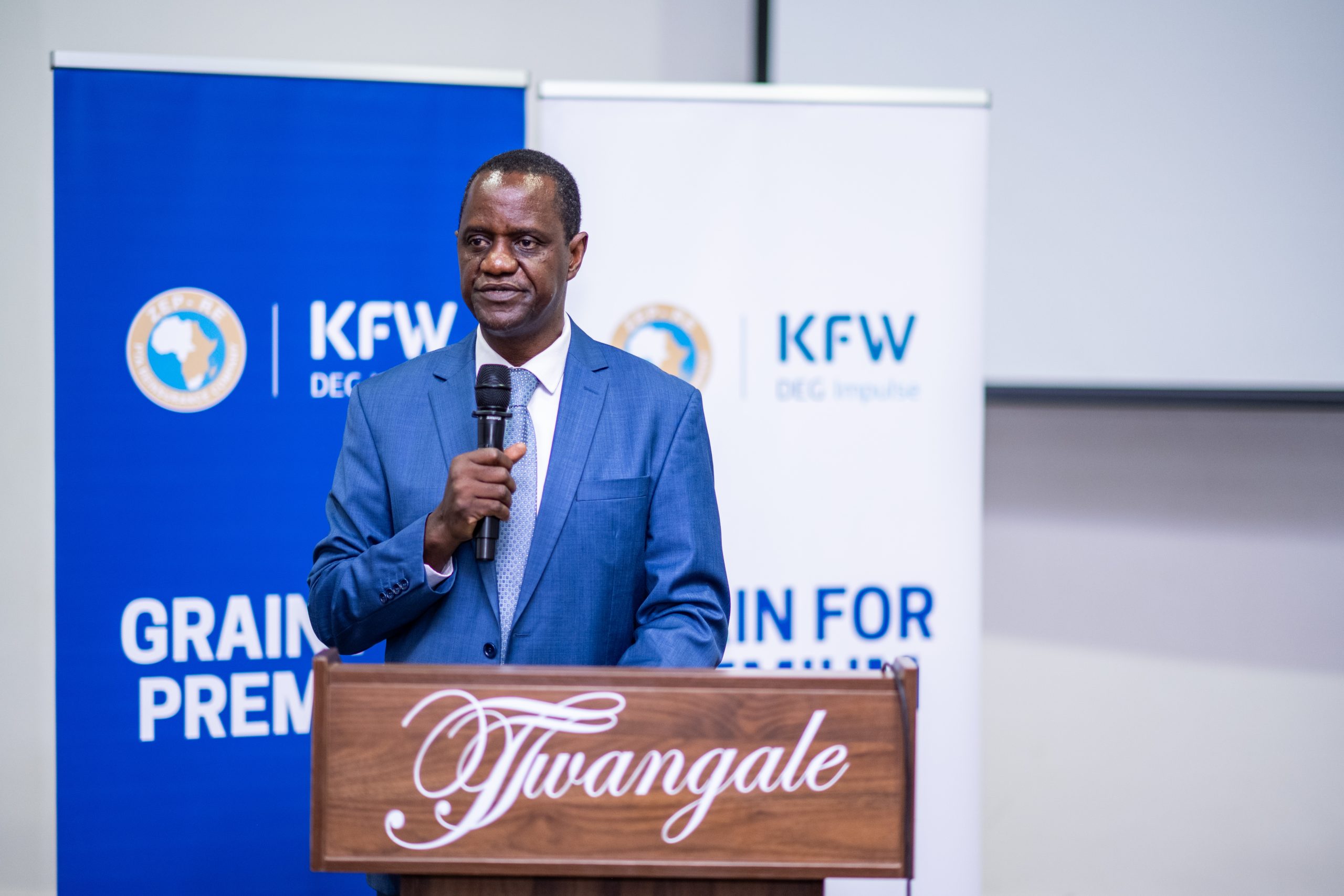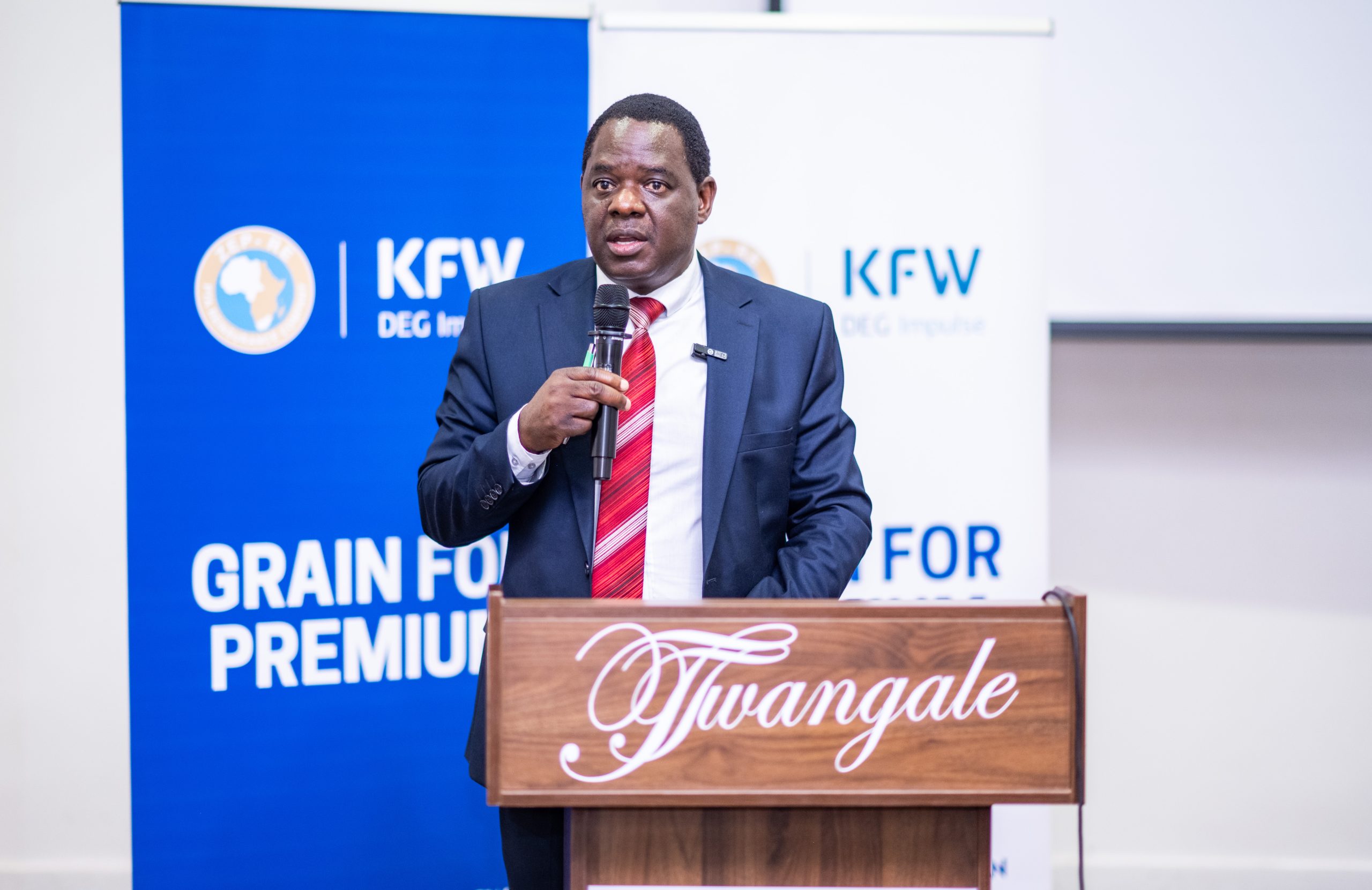Empowering Zambia’s Smallholder Farmers: ZEP-RE launches the ‘Grain for Premium’ Project

For over three decades, ZEP-RE (PTA Reinsurance Company) has stood at the forefront of strengthening insurance and reinsurance capacity across Africa. Guided by its founding mandate to advance the industry within the COMESA region, promote regional integration, and drive economic development through risk management, ZEP-RE has become a trusted force in building resilience across the continent.
In pursuit of closing the protection gap, the company has consistently partnered with development actors to bring inclusive and innovative insurance solutions to underserved communities, particularly smallholder farmers, helping them withstand and recover from the increasing shocks of climate-related risks.
Zambia is home to approximately 4.3 million smallholder farmers, each cultivating less than 5 hectares of land. Yet, only about 1 million of these farmers have access to insurance, which is co-financed by the government through the Farmer Input Support Programme (FISP). This leaves the majority vulnerable to the unpredictable impacts of climate change.
While insurance is critical for managing agricultural risks, smallholder farmers face significant hurdles. A market assessment for the Grain for Premium project revealed that over 90% of farmers surveyed expressed a need for better access to information. Climate change exacerbates these challenges, to more frequent crop failures from droughts and floods, and causing pasture degradation, that hampers livestock productivity.
In response to increasing climate-related risks, ZEP-RE (PTA Reinsurance Company) has taken a strategic and innovative approach by developing a climate-resilient insurance solution tailored to the needs of smallholder farmers. Leading a consortium of four insurance companies; Mayfair Insurance, ZSIC General Insurance, Professional Insurance Corporation Zambia, and Swan Insurance, ZEP-RE has launched a hybrid climate risk insurance product that offers coverage for floods, excess rainfall, dry spells, drought, and uncontrollable pests and disease outbreaks.

This innovative product was officially launched during a stakeholder workshop in Kafue, Zambia, on 19th-20th May 2025. Designed with a strong human-centered focus, it aims to enhance the resilience of smallholder farmers (SHFs), particularly those not covered under the Farmer Input Support Programme (FISP), or those seeking coverage for additional hectarage beyond the one-hectare subsidized by government. Furthermore, farmers are being given the opportunity to access insurance for the upcoming farming season at the point they are selling their grain, 5-6 months ahead of the growing season allowing for instalment payments and also use of their harvested grain to convert into premium.
By addressing key protection gaps and providing farmers with tailored risk management tools, ZEP-RE’s initiative supports national climate adaptation efforts and empowers smallholder farmers to sustain their livelihoods in the face of growing environmental uncertainty. With support from DEG impulse, the project aims to reduce vulnerabilities for 182,000 smallholder farmers and facilitate linkages to better competitiveness.
At the launch of the three-year Grain for Premium Project (2025 to 2027), the Permanent Secretary for Technical Services, Mr. John Mulongoti, represented by Dr. Chizumba Shepande, described the Climate Risk Insurance Project as a climate risk solution that resonates with the changing times.
He noted that the drought during the 2023/24 agricultural season had once again highlighted the urgent need for effective risk mitigation strategies. According to the Permanent Secretary, “The government remains steadfast in its commitment to deeper engagement in this area and welcomes private-sector-led initiatives that are strongly backed by public support’’. He added, “this model holds potential for sustainable scalability”.

Mr. Mulongoti further acknowledged that insurance, while important, is not a standalone solution. When integrated with sound agronomic practices, he explained, the impact is significantly enhanced. Highlighting that the synergy between technical knowledge and risk financing is a critical dynamic that must continue to be fostered.